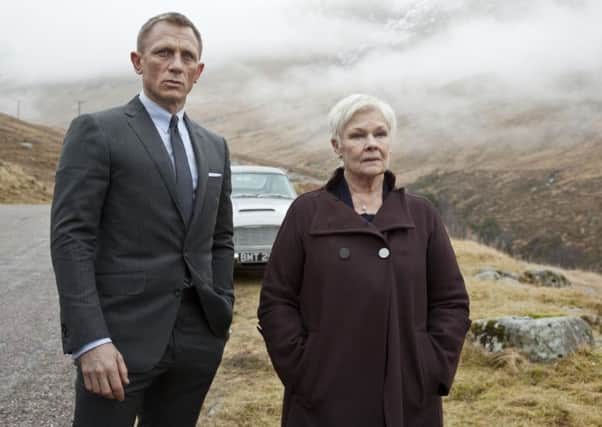John Kampfner: Arts need united front to make best of Brexit


Millions who have never been to Scotland know about this extraordinary annual extravaganza of culture; it encourages hundreds of thousands of them to actually visit each year.
The danger of the Brexit vote is that the international goodwill, the spirit of post-war optimism in which the festival was founded, will be diminished. The introduction of restrictions on freedom of movement, both for tourists and for touring performers, could also prove damaging.
Advertisement
Hide AdAdvertisement
Hide AdEverything must be done to ensure that does not happen. It is vital that the glories of Scottish culture, like the best of British arts and creative industries more generally, are safeguarded, whatever happens with Britain’s future relationship with the EU.
This is not simply an issue of national pride but of hard cash. The arts and creative industries have been the fastest growing sector of the UK economy in recent years and in Scotland employ more people than the oil and gas industry. They are valuable not only in themselves but as a major contributor to the country’s balance sheet, worth £84.1bn a year.
Yet traditionally, as a sector, we have failed to punch our weight politically. Partly that is a question of scale; while there are multinational publishing and film companies, the majority of creative businesses are small. But it is also because for a long time we were not united. That is why the Creative Industries Federation was established, as a not-for-profit organisation entirely independent of government and with members spanning the arts, creative industries and cultural education. And if ever there was a need to speak as one, forcefully and with clarity, that time is now.
Our members, in our own poll, were 96 per cent in favour of remaining in Europe, so the decision was not what we would have desired. But pragmatism is now paramount. Within hours of the referendum result, we announced a series of meetings, from Swansea to Plymouth and Newcastle to Norwich, to assess concerns, establish priorities and produce an action plan for politicians and negotiators outlining what we need to survive and grow. This week that discussion continues in Edinburgh with many of our Scottish members.
Whatever their views on independence for Scotland, many of our supporters see the immediate value of being part of a UK-wide body like ours with the potential for greater heft through cooperation.
We expect there will be particular Scotland-specific information fed into our evidence-gathering process at the Edinburgh event. But experience to date suggests some issues – such as freedom of movement of talent and the need to preserve strong copyright regulations – will be similar and it is those elements we aim to identify. Everyone from architects to website developers will have some specific requirements. But we believe we will make more progress if they make their case alongside the orchestras, design practices and animation companies who also need specialist skills and have their own demands.
On this issue the arts and creative industries will need to cooperate across borders in the potentially turbulent years to come. We will have to face these challenges in a clever, coordinated manner.
We believe it will be crucial to look outwards and defy the negative image that the Brexit vote has offered the world. The former diplomat, Tom Fletcher, who chairs our international advisory council, will testify that cultural exports such as James Bond and Downton Abbey are major soft power weapons in winning hearts and minds overseas. They will be more important than ever in the years to come.
Advertisement
Hide AdAdvertisement
Hide AdOne of the strengths of the creative community, in Scotland and across the UK, has been its liberal, inclusive approach and its willingness to embrace new ideas. Now, by necessity, we will need to create fresh alliances and collaborations worldwide.
The arts and creative community as a whole was largely of the view that Brexit was not what it wanted. But as a sector we must now deploy our imagination and innovation to make the new future work.
John Kampfner is chief executive of the Creative Industries Federation